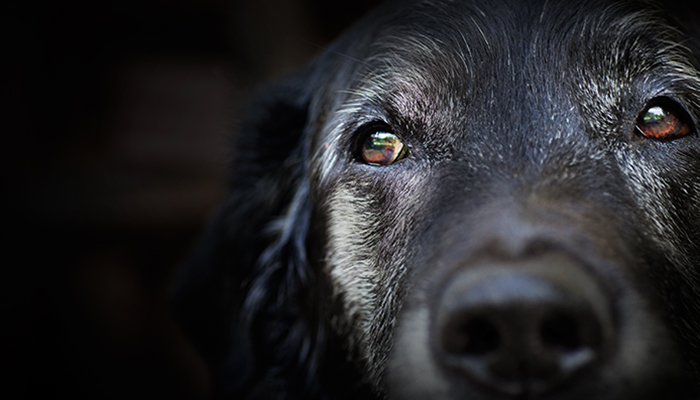When a Pet Needs to Leave
February 14, 2017

The master list of losses counts 400 potential losses that can push us into grief. I don’t have room for stories about all of them. But the site lacked a story about losing a pet we love, a loss too important and significant to neglect.
I knew an article would come.
Recently a woman wrote to me at the miracles book website. She couldn’t find her cat, didn’t know what to do or what to think. We emailed back and forth. I told her that not knowing constitutes a loss in itself. I mentioned that I needed an article on grieving a pet for the site. She said she would write one. We negotiated the business aspects.
I had the story within 24 hours.
We don’t walk in anyone’s shoes. I can’t write about losing a beloved pet. But the woman who wrote this story can. I’m grateful for her courage in sharing with us. My heart goes out to all of you who have a pet that needs to leave.
At first I planned to call it, “When a Pet Needs to Say Goodbye.” Then I realized that didn’t fit because it’s not goodbye; it’s “Until We Meet Again.”
I hope the story affects you the way it touches me, and I don’t have a pet.
Melody
WHEN A PET NEEDS TO LEAVE
By Jennifer Kathleen Gibbons
My cat, Felix, disappeared a few days ago. I’ve searched for him and prayed to God to bring him back. No luck. Then Life reminded me about my first cat, Electra.
More than just a cat, Electra taught me about letting go.
In 1989, as I approached my seventeenth birthday, my closest friend Meranda called my mother. Meranda wanted to give me a kitten for my birthday. Mom hesitated at first, but then she said yes.
“Great!” Meranda said. “Because I just picked out a kitten from the animal shelter!”
Meranda doesn’t waste time.
On my birthday, she presented me with a black and white kitten — a tuxedo cat. Small for her age but beautiful, I knew what to call her. I named her Electra, for the dog in the comic strip Cathy and for the label that recorded 10,000 Maniacs and Judy Collins.
Instantly Electra walked into our lives and straight into everyone’s heart. At night she slept with either my mother or me. She liked it when we brushed her. In her ladylike way, Electra sat on my chest drooling, perfectly happy and content to be there. Electra – so regal, so elegant. Times she reminded me of Ludwig Bemelmans’ Madeline, the subject of his classic children’s books. Most definitely, if Electra saw a tiger at the zoo, she would say “Pooh, pooh.”
She saw me through many experiences and rites of passage including my first job, my grandfather’s death, unemployment and depression. When I went to London, she stared at my picture as if to say, “Where are you? Where did you go?”
Electra recognized words. Food. Out. Brush. When I said, “Litter box is clean,” and then placed the box on the bathroom floor, she pranced to the box flashing a look that said, “Do you mind? I need some privacy here.”
She made friends with my father on one of his visits when she approached him and nudged his hand in a way that said, “That hand is free. You can pet me now.”
So he did.
Some months later while I talked to him on the phone, Electra started meowing loudly. “I can’t talk now, Dad,” I said. “Something’s upsetting Electra.”
“Put her on the phone,” Dad said, “I’ll set her straight.”
I put the phone next to Electra’s ear. “Look here, cat,” he said, “you get two meals a day and you have a warm place to sleep. What do you have to complain about?”
Electra stopped meowing right away.
Six years ago in 2005, the vet removed a cyst from Electra’s rectum. We called it her butt lift. She never fully recovered. The still elegant and regal Electra couldn’t jump like she used to. She took more naps. It delighted her when we moved to an old farm house and she could prowl the land. She scared mice by flinging her paw to say, “Vermin, go away. I want nothing to do with you.”
She made friends with our landlady and her ex-husband. He snuck her hot dogs and petted her all the time.
Electra had no problem finding a place in everyone’s heart.
But she spent increasing amounts of time sleeping in the sun. She moved slowly. Her full eighteen years showed. One November day, Mom found her on the grass not moving but still alive. We got food in her, but then she headed straight for our spare room and just laid there blinking — not eating, not drinking. Nothing.
I sat with her. Read to her. Pleaded with her. “You can’t die. Not now. I won’t let you,” I said. I had sprained my jaw at a spin class. The pain from that made it hurt to talk. But I had to tell her. I couldn’t lose Electra. I wouldn’t lose her, wouldn’t let go.
I called my vet’s office but they didn’t have any available appointments and I didn’t have the money to pay for an emergency vet. So we fed her, kept her warm and I prayed for her to get better. Upset, I called my Dad. He kept saying it would be okay, she had pulled through before.
“Stop it,” my mom said. “This time it’s different.”
“You two always tell me to be positive, to not think the worst will happen,” Dad retorted. “Now I’m going to be positive for you.”
Finally we got Electra in for an appointment. Carrying her, I could feel her bones against her fur. But it would be okay. The vet would find a magic bullet. He examined her. As he did, Electra stared at me with big green eyes. Then we stared at each other.
I heard what Electra had to say. I’d been hanging on so tightly, I hadn’t considered what she needed. In human time, Electra had lived for 126 years. She needed to leave. She needed me to let her go. The vet said something about tests, calling us with the results, proceeding from there. He gave her a shot so she wouldn’t be in pain.
No way could I put her to sleep. But I knew I had to help her through the last night of her life.
When we got home, she drank a little milk and then went back into the spare room. I went to my room and cried. My jaw still hurt like crazy. I can’t tell you how I got through the night. Connie May Fowler wrote that when she had to deal with things she didn’t like, she went into a white space. That must be where I went. I had to. I needed to be there to breathe.
I took my sleeping bag into the spare room. I looked into Electra’s eyes and said, “If you want to leave, go ahead. I’ve been so blessed to have you in my life.”
Electra looked at me and I knew she understood. This was letting go, the hardest letting go I ever had to do. I turned off the light.
Hours later, she started to shriek. I held her paw. In the dark, I tried not to think. I told her I loved her. Holding her paw, I fell back to sleep. I knew when I woke up in the morning, she would be gone.
Electra died while I slept. I felt so stunned. The worst had happened. How could I still be here, still breathe, still function? Still in the white space, I managed to get dressed.
My mother, my cousin, my landlady Kathryn and I attended the funeral we held in the yard Electra had come to love so much. My cousin brought flowers. I gently placed Electra in her favorite satin pillowcase.
Later a friend sent me a condolence card. “Such a lady,” she wrote about Electra. “So beautiful, so elitist.” All of it, so true.
I wandered in a fog. People recommended pet loss groups but I didn’t go. Instead I reread Anne Lamott’s essay on This Dog’s Life. I watched the Gilmore Girls episode, the one where Lorelai and Rory’s neighbors lose their 34 year-old cat. Rory asks her neighbor Morey if there’s anything she can do. He says, “This is life, Rory. It breaks your heart.”
Life had broken my heart and I couldn’t find glue to fix it.
My soul felt like it had been shot full of Novocain. I gained fifteen pounds. I snapped at people at work. I felt so much guilt. I had guilt about what happened. Guilt I didn’t have enough money to take her to an emergency vet. Guilt I went to sleep that night. But mostly I felt guilty because Electra had left.
Finally when I read Eckhart Tolle’s A New Earth, I realized that I couldn’t stop her death. Ego caused me to think that I could.
There are times I still feel sad about Electra. I let myself feel sad. Then I try to remember the good things, the times she drooled on me, the times I didn’t want to get out of bed so she climbed in bed with me, how when I watered the garden she walked beside me with her head pointed towards the sun.
Months later, I went to the shelter and got another cat, Ida B. Then another cat appeared in my yard. I named her Opal. Then came Felix, the cat who’s missing now. I’ve prayed so hard that sometimes I feel like I need to give God a break, so I pray to Electra instead. “Just watch over Felix, okay? Keep him safe.” Wherever Felix wandered, I know Electra will do this important job.
I miss Electra. I always will. But I’m so grateful to have had her in my life. One night as I drifted to sleep listening to Will Ackerman’s The Bricklayer’s Beautiful Daughter, I saw her for a moment, young and healthy. She had gained back the weight she lost. Her coat shined now. I told her how much I loved her, that I would see her again.
Slowly but deliberately, she walked away, her tail in the air.
She didn’t leave any paw prints behind.
A pet often becomes more than a dog or cat. The pet becomes a piece of our heart, part of our family. Remember, guilt is a stage of grief. It’s more than grief; we’re on a journey. Life will ultimately bring us what we need whether it’s a book, movie, television show, song or dream. We don’t need to stop feeling to let go; we just need to let who or what we love leave when it’s time to go.
About the author

In addiction and recovery circles, Melody Beattie is a household name. She is the best-selling author of numerous books.
One of Melody's more recent titles is The Grief Club, which was published in 2006. This inspirational book gives the reader an inside look at the miraculous phenomenon that occurs after loss--the being welcomed into a new "club" of sorts, a circle of people who have lived through similar grief and pain, whether it be the loss of a child, a spouse, a career, or even one's youth.
For more information about Melody and her books, visit the author's official website
